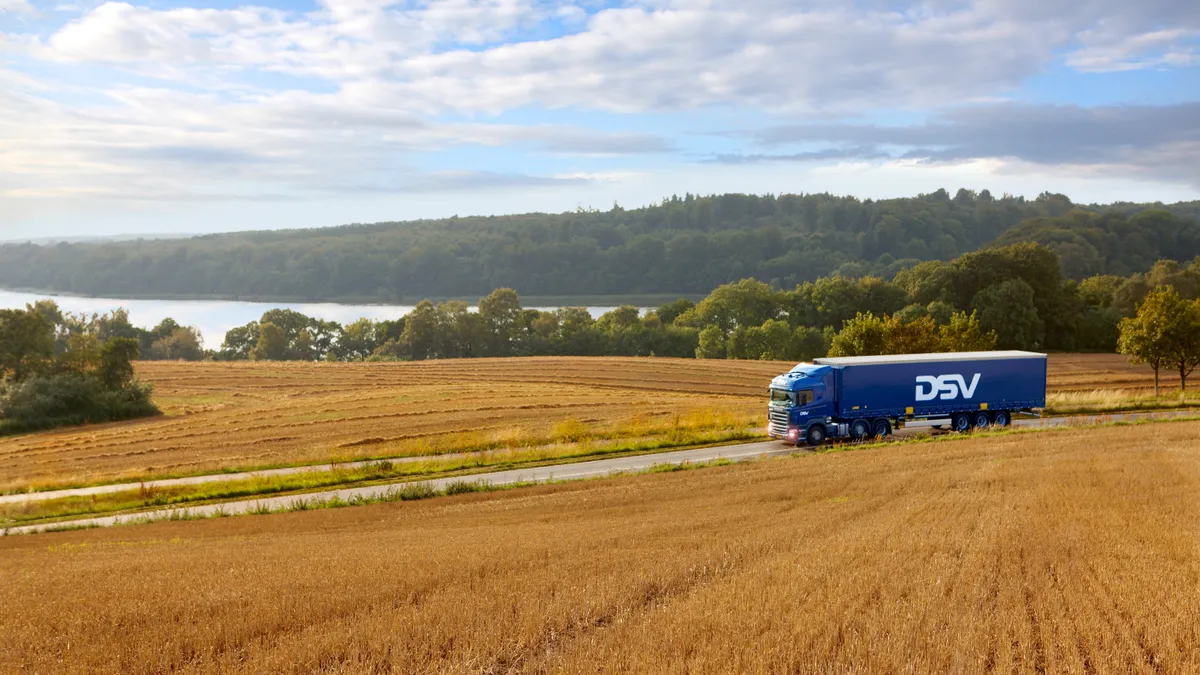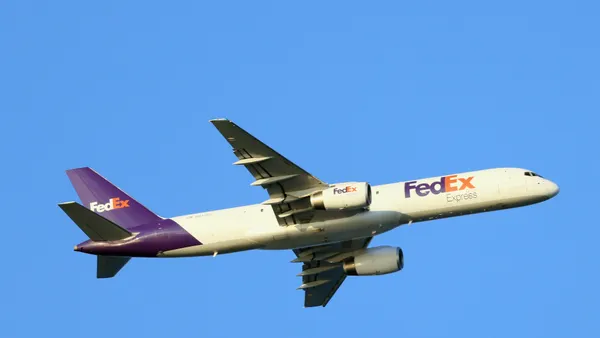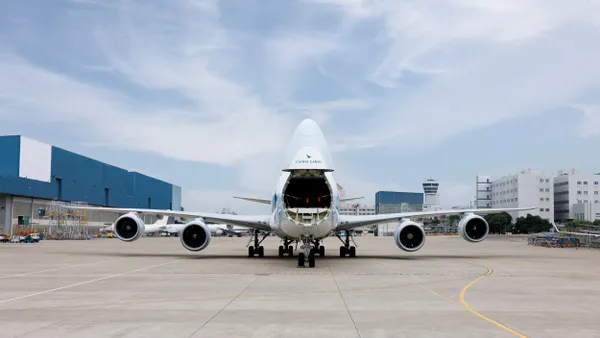Dive Brief:
- DSV Panalpina "is ready for new M&A adventures," CEO Jens Bjørn Andersen said on the forwarder's earnings call Wednesday. The company's appetite for M&A "is bigger than ever before," Andersen said.
- DSV Panalpina lists large, global freight forwarders with high exposure to air and sea freight as its main acquisition targets, in an annual report released Wednesday.
- The company completed the integration of Panalpina in 2020 after announcing the $4.6B acquisition in April 2019, making it, by some estimates, the fourth-largest freight forwarding firm globally. Even so, its market share remains less than 5% "due to a very fragmented industry," the report stated.
Dive Insight:
DSV Panalpina executives laid out a clear vision of which types of firms they see — and don't see — as acquisition targets.
One analyst on the Wednesday earnings call asked if DSV would consider acquiring a railroad. Andersen minced no words. "It's not going to happen," he said in response, adding that "preferred M&A would be companies like ourselves."
The acquisition of another large forwarder would slightly consolidate the highly fragmented market, in which the top 20 players hold just 30% to 40% share, and even DHL holds just 5% of the market, according to DSV's report.
The fragmented forwarding market, unlike the consolidated ocean shipping market, provides a bevy of options to shippers looking to diversify their logistics options. Plus, it keeps pricing competitive.
On the other hand, large forwarders offering services from air and sea, to road, to warehousing are appealing for many shippers seeking one provider to handle a complex supply chain. The larger the freight forwarder, the more clout it has with container lines to secure capacity and negotiate rates —and the more value it can demonstrate to shippers.
Andersen didn't specify which companies would help DSV grow into a larger forwarder but did say, "We know these companies, we know them really well. The problem is, sometimes they are not for sale."
That was the situation with Panalpina, which rejected two of DSV's prior offers and was also in merger talks with Agility.
"Perseverance paid off in that case, and we believe that also to be the case going forward," Andersen said.
DSV's annual report nodded to Maersk's absorption of Damco and how the move could impact on the market.
"When digital start-ups emerge in our industry, or if established carriers offer traditional freight forwarding services, we are potentially faced with new competition," according to the report.
Maersk continues to be an asset-based carrier, but it also provides several forwarding services — thus making it a competitor to many of its customers. The dynamic will drive forwarders to find ways to compete with the largest shipping line, and analysts believe it could instigate a wave of M&A that gives forwarders more purchasing power.
DSV has grown its business through several acquisitions, and Andersen described M&A as "carved in stone in the strategy document of DSV."
Like many companies, DSV put major acquisitions on hold during the pandemic. The forwarder made two smaller acquisitions last year: Prime Cargo and Globeflight.
But pent-up capital and demand from the pandemic has logistics firms raring to go on M&A this year, and DSV executives assured analysts they are ready to buy at a moment's notice.
"We'll be much more active in 2021," Andersen said. "In an ideal world we would wait a little bit because we need, still, to digest Panalpina fully, but we also need to be opportunistic if a particular opportunity arises. We'll have to be ready to act upon it."















